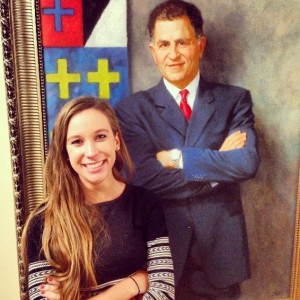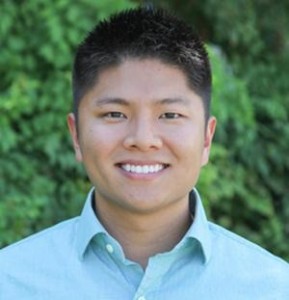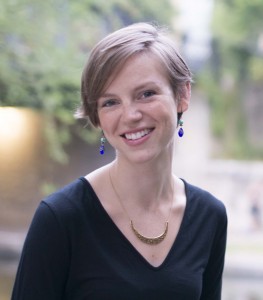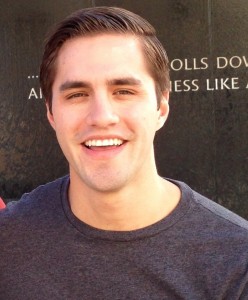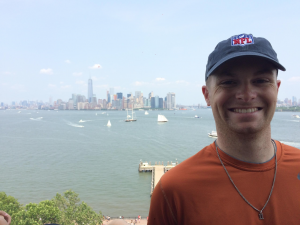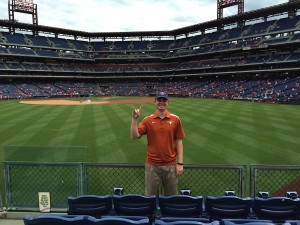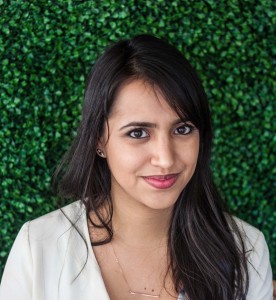 Shirelle Noble, BHP ’09, joined Bain & Company after graduating from BHP. After spending a few years working as a consultant, she felt it was time to make a move and found a great opportunity to do just that with rewardStyle. She is currently leading business development and partnership efforts for rewardStyle.
Shirelle Noble, BHP ’09, joined Bain & Company after graduating from BHP. After spending a few years working as a consultant, she felt it was time to make a move and found a great opportunity to do just that with rewardStyle. She is currently leading business development and partnership efforts for rewardStyle.
How would you describe what rewardStyle does?
rewardStyle connects digital style publishers and global retailers to provide marketing solutions across the web and social media. At our core, we help fashion bloggers earn commissions from the products they promote on their blogs by providing them with tools and education. We connect the bloggers to our retail partners, who pay for the organic promotion and distribution of their products to the bloggers’ audiences. We do this by managing a technology platform which sales and other key metrics. Our tracking and platform allows us to report back to both the bloggers and retailers on performance. In short, rewardStyle is basically how fashion bloggers are able to make money from linking to products.
We didn’t invent affiliate marketing, but we were the first to make it accessible for fashion bloggers and influencers across the web. We are the market leader in our space. It is a very niche space, but also a profitable one. We work with all the major retailers in Europe and the U.S. and we are also expanding to Asia. We were also the first to launch shoppable Instagram through our product called LIKEtoKNOW.it, which has been a game changer in social media. Since Instagram doesn’t let anyone use links within their feeds, the LIKEtoKNOW.it solution allows consumers to find out what their favorite bloggers are wearing on Instagram by registering for the email service.
Tell me about your roles in sales and business development.
I was brought on board at the end of 2013 to run the team that cultivates relationships with our publishers. My role was largely focused on scaling the team and establishing strategies to keep up with our rapid growth. Our company has grown very rapidly- I was the 48th employee and now we are over 110 employees. We continue to scale to meet the growing demands of both our retail and publishing clients. At the end of last year, I transitioned into business development because of my background in strategy consulting. I was given a project to assess our European business, so I lived in London for three months to identify the growth opportunities and create the strategy plan fro 2015.
Tell me more about what you were doing for that project.
The crux of the problem was to understand the opportunity size for our European business and how to capture it in 2015. At the time, the European business was lagging the U.S., so I looked into all the individual markets to understand why. Each European country is so different from one another, so we stopped treating the markets equally and started to think about each individual market’s revenue potential. The change of mindset has been very successful.
What work experience has been most rewarding for you so far?
The European strategy project has been most rewarding to me. When I was at Bain, I wasn’t able to see the results of my work in the real world. The European project is a great example of applying the consulting approach, but also leading the implementation. Six months later, I’m excited to see how my work is directly impacting the company.
What is your favorite part of your job?
Implementing the solutions I create and being in a fast-paced industry that is growing rapidly. We like to joke that all of our problems are “good problems to have” because they are all related to growth. A major plus of this role has been the opportunity to wear different hats and raise my hand to work on projects that interest me. Working internationally is something I love and rewardStyle has given me many opportunities to pursue that passion. I grew up in Indonesia and went to high school in Jakarta before coming to UT. Being part of the team that figures out the strategy for these new markets is something that really gets me excited and makes me want to work hard for the company.
rewardStyle has experienced rapid growth during the time you have been there. What kind of unique opportunities and challenges has that presented?
From the tech side, it is the ability to keep up with the growth of our products and data. One of the most interesting problems we are facing today is around email. Because the core product of LIKEtoKNOW.it is an email service, we are sending more than a million emails a day. It’s challenging to keep up with the volume and provide the best consumer experience.
What’s on the horizon for rewardStyle and how does that tie into the work you are doing?
International expansion is a major focus for the company, and I am leading the establishment of our first office in China. We are also continuing to grow our core services and LIKEtoKNOW.it, which is approaching one million registered users.
What experiences and skills did you gain at Bain as a consultant that have made you successful at rewardStyle?
The ability to critically think about a problem and determine the information I need to make an informed decision. I gained the ability to present a compelling recommendation to my team and build confidence in the solutions and plans I create. We are a young company, but it is a very supportive environment. One of the benefits of being in the social media/tech space is that innovators are young.
What advice would you give your college self?
Take advanced accounting, don’t avoid it! I was a BHP/Finance major and I didn’t take it because I was worried about ruining my GPA, but I wish I had gotten more of those hard skills. I also would have learned to code, even just some basic stuff. If I were a freshman, I would be looking at how I could gain some coding experience, whether in school or through a summer program. Being able to maintain a website and know some database architecture is helpful. I am trying to learn more now.
I also want to say how thankful I am for my BHP education. So many of the friends and support groups I have today are from fellow BHP-ers. Networking is really about finding a great friend group, staying in touch with them, and growing together throughout your career.
Where do you see yourself if 5 years?
I have no idea. It is hard to say! I will still be in the tech space and hopefully at a company that is growing quickly!

